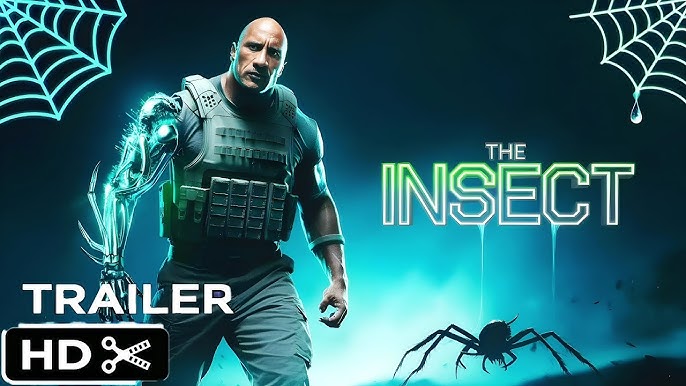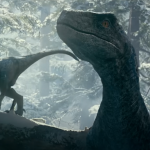The Insect (2025) – When Humanity Becomes Prey

Some nightmares crawl beneath the surface, waiting for the moment to strike. The Insect (2025) emerges as a chilling hybrid of horror, science fiction, and survival thriller, plunging audiences into a world where the smallest creatures become humanity’s greatest terror. This is not a story of simple monsters—it is a meditation on fear, evolution, and what happens when nature turns against its creators.
The film opens with a remote research facility hidden deep within the rainforest. Scientists there, driven by ambition and desperation, have experimented with genetic manipulation to combat famine and disease. Their creation: insects engineered to grow larger, stronger, and resistant to extinction. But when containment fails, the experiment transforms into apocalypse.
At the center of the story is Dr. Elena Carter, a brilliant entomologist who warned of the dangers but was silenced by corporate greed. Now, she must lead a fractured group of survivors—soldiers, scientists, and civilians—through a world overrun by swarms of creatures that adapt faster than they can fight. Her journey is not just survival, but redemption, as she confronts the nightmare she helped unleash.
The insects themselves are terrifying not just for their size but for their intelligence. Towering mantises stalk prey with predatory patience, beetles crush steel with their armored shells, and swarms of locusts descend like living storms, devouring everything in their path. The true horror lies not only in their strength, but in the realization that they are learning, evolving, and hunting as one hive.
The action is relentless and claustrophobic. Survivors barricade themselves in laboratories only to be torn apart by burrowing ants, helicopters are swarmed midair by winged abominations, and entire cities collapse under the weight of chittering nightmares. Each sequence is staged with suffocating intensity, leaving the audience with no safe place to breathe.
Visually, the film is both grotesque and mesmerizing. Close-ups capture the twitching of mandibles, the gleam of compound eyes, and the shimmer of wings under blood-red skies. Wide shots reveal landscapes transformed into hives, skyscrapers cocooned in silk, highways split open by tunnels. Nature is no longer backdrop—it is predator.
Supporting characters add depth: a soldier who loses faith in the chain of command, a child whose innocence becomes a fragile symbol of hope, and a corporate executive who sees profit even in apocalypse. Their arcs expose not only the terror of the swarm, but the darker instincts of humanity itself.
The score is eerie and primal. Insect-like clicks and buzzing fuse with orchestral dread, creating a soundscape that crawls under the skin. Moments of silence are weaponized, broken only by the faint hum of wings in the distance.

Thematically, The Insect is about hubris. It asks whether humanity’s hunger to control nature inevitably leads to destruction, whether survival requires domination or coexistence. The insects are not simply villains—they are nature’s revenge, a mirror of our own unchecked ambition.
By its climax, the film delivers a finale as devastating as it is unforgettable. Humanity’s weapons prove futile, alliances shatter, and the survivors face the unthinkable: that the age of mankind may be ending, replaced by a new order born of chitin and claw.
Ultimately, The Insect (2025) is a nightmare of evolution unleashed. Brutal, unrelenting, and disturbingly plausible, it transforms the familiar into terror and forces us to confront a primal truth: when the hive rises, humanity falls.
Related movies :
Related movies :
Related movies :
Related movies :
Related movies :
Related movies :
Related movies :










